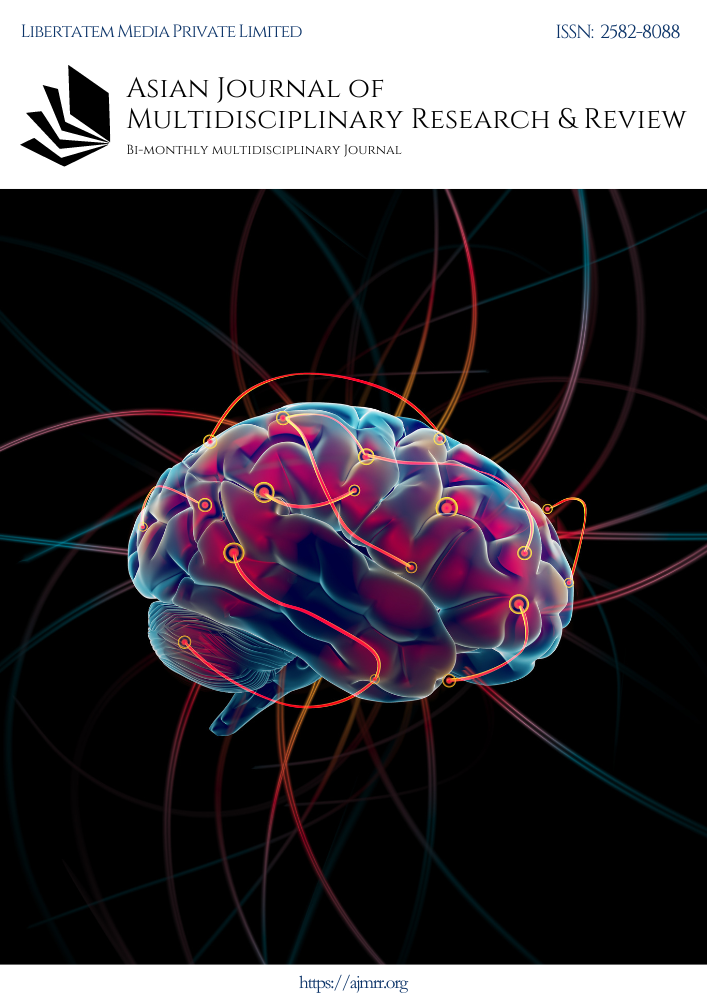INTROSPECTION IN PRACTICE: AN EFFECTIVE TOOL TO IMPROVE THE OUTCOMES OF HIGHER EDUCATION
Abstract
The years spent in education are paramount to a person’s intellectual, psychological and social development. The people one interacts with, the topics one learns about, the skills one gains, and the decisions one takes- they all help in seemingly covert yet instrumental ways in shaping who one becomes as a professional and as a person. Hence, it is very important to study and understand what makes these decisions important, and how one can make them better.
In furtherance of this objective, this paper will attempt to investigate the significance of introspection and reflection by students in the years surrounding the path of higher education, specifically looking at what the concept of introspection really means, how it can help with better decision making while choosing a career path or course of study, and how it further helps one become more efficient and satisfied when it comes to academic and professional growth not only in the years spent in university but also beyond that in one’s career and life.
This paper will analyse in a qualitative manner the practice of introspection by reviewing psychological and pedagogical studies and publications on the same. It will then go on to analyse the idea of higher education ̶ complete with its objectives and importance in the present socio-economic structure of the world, and use the principles of humanistic psychology to integrate it with the greater picture of individual and collective growth. The paper will carefully study and explain the role introspection plays in this entire process.
Downloads
Downloads
Published
Issue
Section
License

This work is licensed under a Creative Commons Attribution-NonCommercial-ShareAlike 4.0 International License.
License Terms
Ownership and Licensing:
Authors of research papers submitted to the Asian Journal of Multidisciplinary Research & Review (AJMRR) retain the copyright of their work while granting the journal certain rights. Authors maintain ownership of the copyright and grant the journal a right of first publication. Simultaneously, authors agree to license their research papers under the Creative Commons Attribution-ShareAlike 4.0 International (CC BY-SA 4.0) License.
License Permissions:
Under the CC BY-SA 4.0 License, others are permitted to share and adapt the work, even for commercial purposes, as long as proper attribution is given to the authors and acknowledgment is made of the initial publication in the Asian Journal of Multidisciplinary Research & Review. This license allows for the broad dissemination and utilization of research papers.
Additional Distribution Arrangements:
Authors are free to enter into separate contractual arrangements for the non-exclusive distribution of the journal's published version of the work (e.g., posting it to institutional repositories or publishing it in books), provided they acknowledge the initial publication of the work in the Asian Journal of Multidisciplinary Research & Review.
Online Posting:
Authors are encouraged to share their work online (e.g., in institutional repositories or on personal websites) both prior to and during the submission process to the journal. This practice can lead to productive exchanges and greater citation of published work.
Responsibility and Liability:
Authors are responsible for ensuring that their research papers do not infringe upon the copyright, privacy, or other rights of any third party. The Asian Journal of Multidisciplinary Research & Review disclaims any liability or responsibility for any copyright infringement or violation of third-party rights in the research papers.



